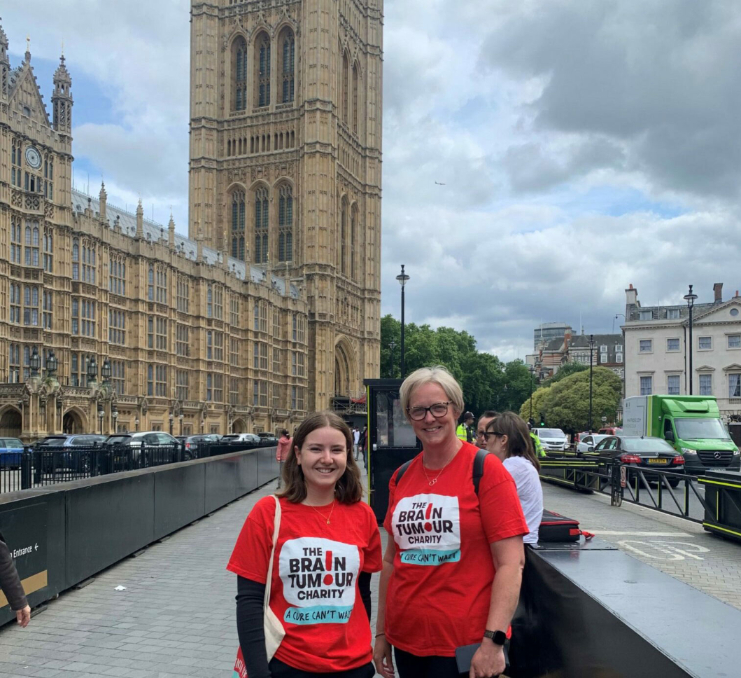Yesterday, the Scottish Government launched its much anticipated Cancer Strategy. This sets out how it intends to improve cancer services, care, treatment and overall survival over the next 10 years.
Alongside the new Cancer Strategy is an Action Plan covering the first 3 years of the whole 10-year strategy. This sets out what the government is hoping to achieve by 2026.
Both plans mark a positive step in the right direction for those affected by brain cancer in Scotland. And, some encouraging commitments have been made within the strategy.
Priority Areas in the Scottish Cancer Strategy
There are 11 stated priority areas of improvement within the strategy which focus on cancer pathways and cross-cutting initiatives. The most notable priority areas for our community are:
- Earlier and Faster Diagnosis
- Safe, Realistic and Effective treatment
- Excellent Care and Support after Treatment
- Person-Centred Care for All
- Flourishing Research and Innovation
We are really pleased that these areas are being prioritised. We know they are really important to people affected by brain tumours. This includes a commitment to raising public awareness of the signs and symptoms of different cancers. This is vital for our community as we know from our recent survey that 72% of the adult population in the UK are unable to name a single symptom of a brain tumour.
What we’ve influenced
- New measurements for non-staged cancers
Importantly, the overall strategy recognises that not all cancers are staged. As a result, the Scottish Government has committed to implementing additional measurements for these types of cancers. These include emergency presentations to track progress and improvements.
This is a fantastic outcome and follows our submission to the Scottish Cancer Strategy consultation where we called for the development of separate proxy measures for brain tumours to track progress and improvements as a result of brain tumours not being staged. The Scottish Government’s commitment means that progress around earlier diagnosis and other areas for brain tumours will be tracked in a distinct way compared to other cancers.
- GP Direct Access to diagnostic tests
We are also pleased to see that within the 3-year Action Plan, there is a commitment to ensure that GPs will be able to send patients directly for diagnostic tests. This will help patients as it will help quicken the process because they won’t have to be waiting on a referral to a hospital, or other secondary healthcare provider, in order for them to get their test.
Improving GP Direct Access is also one of the key asks within our Faster Diagnosis policy report. And, it’s great to see that one of our recommendations is already progressing.
This particular commitment is specifically aimed at individuals with non-specific symptoms. However, we know that the non-specific symptoms pathway list needs expanding. Currently, the list doesn’t include the vague or non-specific symptoms associated with brain tumours. Meaning that this pathway doesn’t always recognise those presenting brain tumour symptoms. We will continue to work with the Scottish Government to make sure this works for our community in practice.
- Prioritising Less Survivable Cancers
Crucially for our community, the strategy highlights that less survivable cancers, which includes brain, require continued prioritisation and focus. This is important recognition and we hope that the Scottish Government and NHS Scotland act on the commitments promised in the Strategy and take action to improve the lives of those affected by brain cancer.
What’s next?
Overall, there are promising commitments within the new Cancer Strategy for Scotland. All of these can make real changes to improve the lives of those affected by brain tumours. We look forward to working with the Scottish government in moving the plan ahead and reducing the harm that brain cancer can cause those affected.
It remains vital that policy makers in Scotland recognise that survival rates for brain cancer are particularly poor. According to the latest Public Health Scotland data, over 1,000 people are diagnosed with a brain or CNS tumour in Scotland every year. But shockingly, of those who receive a malignant brain tumour diagnosis, more than half do not survive more than a year.
We urge the Scottish Government to prioritise research into brain tumours and increase funding towards emerging triage tools such as the Dxcover blood test which is currently being developed in Glasgow.
Together we can aim to create the change that will ultimately see brain tumours defeated.

Interested in influencing Policy Makers in Scotland?
Become one of our campaigners today and ensure that the voices of our community are heard and that the implementation of the strategy occurs within its timeframe.
Follow the link below to sign up and help us create and fight for meaningful, lasting change!
